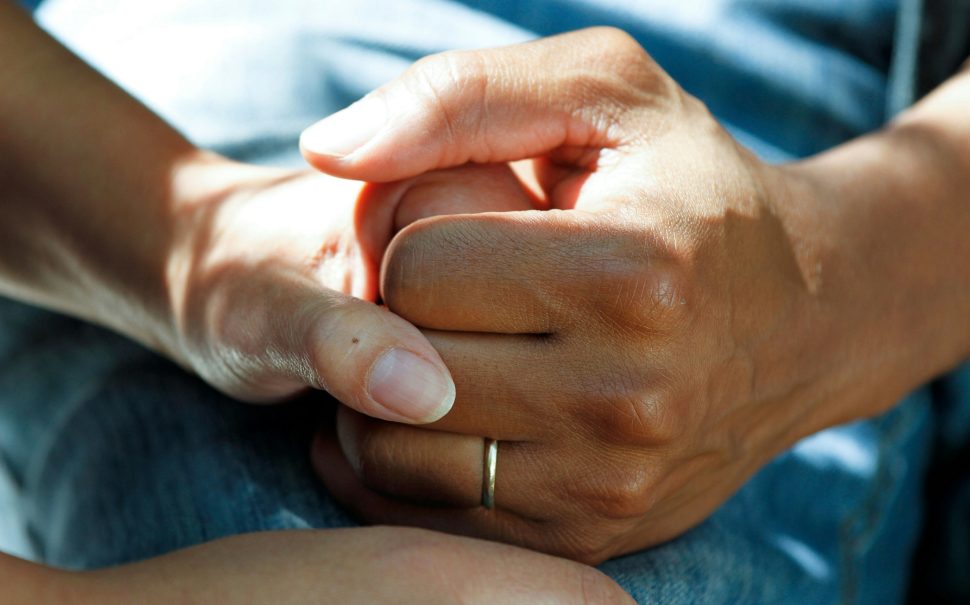A parliamentary debate scheduled for 29 April will discuss the legalisation of assisted dying after a petition received over 185,000 signatures.
The government has faced mounting pressure to U-turn on its current position of keeping the practice illegal.
Several campaigner groups such as Dignity in Dying and My Death, My Decision have pushed for its legalisation in the last decade.
Dr Qamar Abbas, St Clare Hospice’s medical director, and honorary consultant in palliative medicine, explained: “The reason why people are calling for assisted dying is because we are not able to achieve palliative care for the majority of dying patients in this country.”
Yet, whether it will be implemented and how it will work alongside palliative care poses uncertainty for those working in the NHS.
Abbas cited many problems, from a lack of quality palliative care training to an understaffed workforce reliant on locum or bank workers, a lack of bed space, and overall funding.
He felt: “If we move into assisted dying before addressing fundamental problems existent in palliative care, then palliative care will be left behind.
“I hope I am in this job because I am compassionate, and want to hold people’s hands, but will I inevitably stop doing this because assisted dying will become a first resort for people?
“I worry that in 10 years, we could be desensitised to dying.”
UK hospices currently only receive a quarter of the funding needed from the government and are left to self-fund the rest.
Abbas hypothetically compared the situation asking if you could imagine fundraising for a maternity ward through coffee mornings before having a baby – highlighting you simply would not need to.
Attitudes in favour have increased since Baroness Molly Meacher, Dignity in Dying president, set a private members’ bill in motion last year – which failed.
She expressed: “The statistics are looking better than they’ve ever looked.
“I am for the first time optimistic that this will be passed through Parliament in Westminster.
“I’m aware of the unfairness and terrible suffering caused by the current law and it just seems to me, a basic human right that we should have some control over our life and death, particularly if you are suffering unbearably.
“If I were a real burden on my children, I would suffer.”
Trevor Moore, chairman of My Death, My Decision, agreed on the state of palliative care: “Shortcomings in the NHS for whatever reason should not be a reason for not introducing assisted dying.
“We have to be careful not to make assisted dying something completely separate from the rest of end-of-life choices.”
Assisted dying and euthanasia are often misconstrued as the same, however, they are different.
According to the NHS, assisted dying is a deliberate act where someone will assist another person to kill themselves, whereas euthanasia aims to relieve suffering by deliberately ending someone’s life.
Scotland, Jersey, the Isle of Man, and France are all in the process of legalising the practice.
Assisted dying or assisting or encouraging another person’s suicide is currently illegal in England and Wales under s.2 of the Suicide Act 1961, as amended by the Coroners and Justice Act, 2009.
Euthanasia is also illegal and prosecutable by murder or manslaughter.
Moore outlined his frustrations at linguistic specifics ‘to commit suicide’ within assisted dying, which he feels implies criminality.
This is because, up until 1961, suicide was prosecutable in the UK as an illegal offence.
He suggests this terminology is outdated and must be re-drafted more sensitively and accurately to reflect freedom of autonomy in end-of-life choices.
Moore highlighted the requirement that a person who wants assisted dying is reasonably expected to die within six months needs to be addressed.
The six-month stipulation is based on the Oregon model.
Oregon was the first US state to legalise assisted dying, with six months amounting to the total Medicare coverage available for a health insurance scheme that covered hospice and palliative care.
Equally, Moore disagreed with Belgium’s extension of assisted dying to children and reinforced that a unique UK bill which looked specifically at UK needs and attitudes was necessary.
Abbas agreed that the six-month stipulation was useless, arguing that many terminal illnesses are variable.
He explained that a patient can be given three months to live but can live for a further five years – life expectancy is relative to the individual’s condition.
Overall, Abbas felt integrating assisted dying into the NHS would challenge the mindsets of healthcare professionals who have been trained at length to comfort patients at the end of their lives, offering both pain management and psychological support for patients and families.
Abbas concluded that a bad death occurs when the patient and family are not satisfied, they are forced to take the pain away with them.
Labour party leader Sir Keir Starmer has openly supported a cross-party vote and previously worked on the guidance for assisted dying when he was director of public prosecutions.
The vote in favour has generated support over time and according to a poll conducted this year by Opinium on behalf of Dignity in Dying, 75% of 10,000 respondents answered for the legalisation of assisted dying.
Depending on the debate outcome, assisted dying could be legalised within the next year or two either through the courts, through parliament, or a private members bill – thus the decision to change could be instigated this month.





